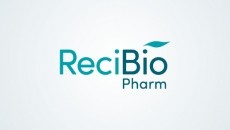SCOLR pushes ahead with 12-hour ibuprofen
Application (NDA) in the latter half of 2008 for a 12-hour tablet
formulation of the painkiller ibuprofen.
The product, based on SCOLR's proprietary controlled delivery technology (CDT), could be the first extended-release tablet version of ibuprofen to reach the US over-the-counter (OTC) market. The US company is now on the hunt for a marketing partner, following the withdrawal of Wyeth Consumer Healthcare - the OTC ibuprofen market leader with its Advil brand - from a global licence and development agreement for the 12-hour formulation. Having re-acquired all rights to use of its controlled delivery technology in products containing ibuprofen, SCOLR is now in a position to report on two previously undisclosed pharmacokinetic trials with extended-release ibuprofen that the company believes will sharpen the approval prospects for the OTC product. It has also released some details on its "extensive" scale-up activities for the formulation. SCOLR announced last month that, with effect from 16 April, Wyeth was terminating the development and licence agreement that gave it global rights to use the CDT platform for all products containing ibuprofen. Under the agreement signed in December 2005, Wyeth had already made milestone and other payments of around $2.1m to SCOLR, including more than $950,000 since 1 January 2007. At the time, SCOLR said Wyeth's decision was a disappointment but also "a significant opportunity for us." The company would continue preparations for a US approval application, while evaluating various opportunities for the product, including discussions with large pharmaceutical companies that had previously expressed an interest in working with SCOLR to commercialise a variety of extended-release ibuprofen formulations. "We are optimistic about our ability to advance commercialisation of a 12-hour extended release ibuprofen product," said president and CEO Daniel Wilds. "We believe that multiple clinical trials, real-time stability and scale-up activities provide strong evidence of the commercial viability of our CDT formulation." That did not stop the company's shares losing nearly half of their value on the day of the announcement. Nor was this the first time a major pharmaceutical partner had got cold feet about SCOLR's technology. Back in April 2004, an undisclosed licensee - referred to only as a Fortune 100 company - decided to hand back all rights to an unknown pharmaceutical product based on the CDT platform. Then as now, SCOLR insisted the withdrawal was not about the efficacy of the CDT system in achieving controlled release of the candidate drug. Company spokesman Keven McGrath says SCOLR remains "very comfortable" with the 12-hour ibuoprofen formulation. Wyeth terminated the licence and development agreement under a "without cause" provision and had not provided much detail on its reasons, he commented. Now SCOLR is keen to put across that the extended-release ibuprofen is very much a going concern. Part of this effort is to release outline information on two pharmacokinetic studies completed in early 2005 and mid-2006 with, respectively, non-coated CDT-ibuprofen tablets and CDT-ibuprofen coated and printed tablets. The tablets in question were produced by SCOLR's contract manufacturers, UPM Pharmaceuticals and Cardinal Health. Both trials were open-label, crossover pharmacokinetic studies comparing one of SCOLR's CDT-based 600mg 12-hour extended-release tablets with three 200mg Motrin brand immediate-release reference ibuprofen tablets, dosed at zero, four and eight hours. In both studies, commented Steven Turner, SCOLR's vice-president and chief technical officer, the subjects' ibuprofen blood levels fulfilled the criteria "that we believe will be required for eventual US regulatory approval." The results were seen as particularly significant, he added, given that the CDT tablets used were the same formulation but produced by two different contract manufacturers. Further details of the pharmacokinetic studies were tied up in confidentiality packages with potential partners for extended-release ibuprofen, McGrath said, although SCOLR intended to release more data at some upcoming medical conferences. SCOLR also noted it had completed extensive developmental stability testing under numerous conditions for the tablets used in the referenced clinical studies. These tablets were the same formula, with and without standard coatings, produced on existing manufacturing equipment by different contract manufacturers, the company stressed. "The same formula has also been utilised in scale-up activities to successfully manufacture various batch sizes at commercial levels at multiple manufacturing locations," it added. On top of this, SCOLR has been modifying its pivotal clinical trial designs for extended-release ibuprofen over the past year to incorporate feedback from the US Food and Drug Administration (FDA). It has engaged Cardinal Health to manufacture the FDA-required registration batches for a Phase III trial, which should go ahead in the fourth quarter of this year. In the meantime, talks continue with potential partners. According to McGrathy, SCOLR is hoping "to consummate something this year." While a partnership for 12-hour ibuprofen was "not entirely necessary" - and SCOLR's original intention was to develop the extended-release formulation independently - at this stage the company needed to form alliances to validate its technology, he added. Whatever the outcome, SCOLR intended to "pursue this to the end." Given the difficulties involved in formulating a 12-hour ibuprofen - mainly to do with achieving the right blood levels and showing bioequivalence, McGrath said, pointing out that Wyeth was one company that had tried and failed - and the size of the ibuprofen market (about $1.8 billion worldwide), the potential benefits of an extended-release version for user compliance and cost-effectiveness may still prove a strong draw.










